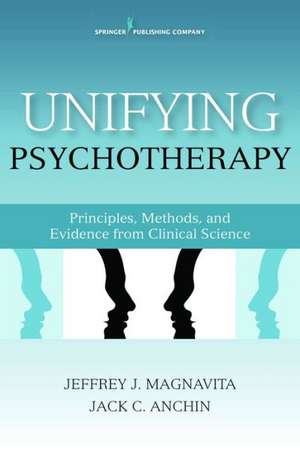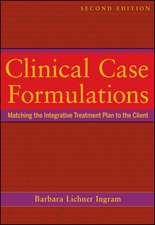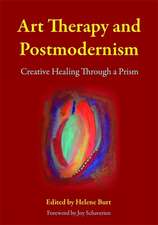Unifying Psychotherapy: Principles, Methods, and Evidence from Clinical Science
Editat de Jeffrey Magnavita, Jack Anchinen Limba Engleză Paperback – 2 oct 2013
The reader is about to encounter a fresh, challenging, and indeed bold treatise on not only the current status of psychotherapy, but also the future of psychotherapy√ .You're in for a rich amalgam of updated biopsychosocially based clinical theory that integrates the biological, psychological, and cultural realms; overarching summaries of research across a number of sciences and clinical disciplines; wide-ranging reviews of individual, couples, group, and family psychotherapy; and ultimately, I think, an intellectually stimulating and compelling argument for a unifying paradigm for psychotherapy.
-From the Introduction by Allan N. Schore, PhD
UCLA School of Medicine, Department of Psychiatry and Biobehavioral Sciences
Magnavita and Anchin provide an excellent review of contemporary research to demonstrate that each of these domains influences both the development of personality (or pathology) and the response to treatment... They] offer conceptual tools to inform a truly multiparadigmatic approach... the scholarship is succinct but well supported by broad and up-to-date citations... Magnavita and Anchin are telling us to think about the whole person... The central contribution is that they are telling us how to organize and manage all the information available, and they are trying to construct systematic conceptual tools to guide us... Thoughtful clinicians at any stage of their careers will find that reading this book results in rethinking their clinical work with deeper engagement and surprising new insights. It is highly recommended.--PsycCRITIQUES
I very much hope that Magnavita and Anchin's book can influence the current psychotherapy research and treatment... gather together core ideas from a wide range of therapy researchers. In this goal, Unifying Psychotherapy does succeed. The cocktail party does bring together a broad range of differing perspectives. What does bringing these perspectives together accomplish? In resolution of conflicts, a summary of the concerns of all of the involved parties can serve as a springboard to propel a launch forward into new solutions and new ideas for how to proceed. Magnavita and Anchin's compendium will hopefully propel the field of psychotherapy forward, embracing a new degree of inclusion of couple and family treatment into psychotherapy research, engendering new understandings of what makes therapy effective, and encouraging new intervention ideas for accomplishing that goal.--Journal of Psychotherapy Integration
With over 1,000 approaches to psychotherapy, many of which have few substantive differences, how can a therapist know which one will provide the most effective treatment? Unified psychotherapy, a significant new paradigm in the evolution of psychotherapy, is a multicomponent, biopsychosocial systems model that draws from all of the major psychotherapeutic models and is grounded in the belief that a combination of theory and practice, supported by evidence-based research, is the key to effective psychotherapy. This book provides a practice-friendly presentation of the theoretical and evidence-based foundations, principles, and methods of unified therapy.
The book offers clinicians and students a framework they can use to select from a variety of technical interventions based on an understanding of relational principles. It includes specific intervention strategies that can be used with the full spectrum of individuals suffering from psychological disorders and relational disturbances. Unifying Psychotherapy describes a paradigm that is anchored in a holistic biopsychosocial systems model of personality and psychopathology and encompasses four domain levels ranging from microscopic to macroscopic. Detailed assessment and treatment principles consider the interplay between the components of all four levels of the biopsychosocial systems model. Evidence-based interventions that are clearly described along with case illustrations underscore the importance of flexibility as an essential component in using unified psychotherapy. The book also discusses current developments in psychotherapy, clinical science, and the discipline of psychology itself as they pertain to the use of unified therapy.
Key Features:- Presents a state-of-the art examination, analysis, and appraisal of unified psychotherapy as the next wave in the evolution of the field
- Details the theoretical and evidence-based foundations, principles, and methods of a specific unified approach to psychotherapy
- Provides an organizing metatheoretical model that draws on all domains to form a unifying framework to guide therapeutic processes and practices
- Describes evidence-based interventions with case examples
Preț: 374.83 lei
Preț vechi: 394.56 lei
-5% Nou
71.72€ • 75.10$ • 59.49£
Carte tipărită la comandă
Livrare economică 10-24 aprilie
Specificații
ISBN-10: 0826199828
Pagini: 328
Dimensiuni: 152 x 226 x 18 mm
Greutate: 0.45 kg
Ediția:New.
Editura: Springer














